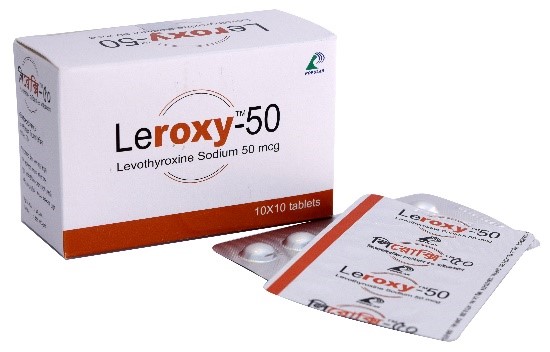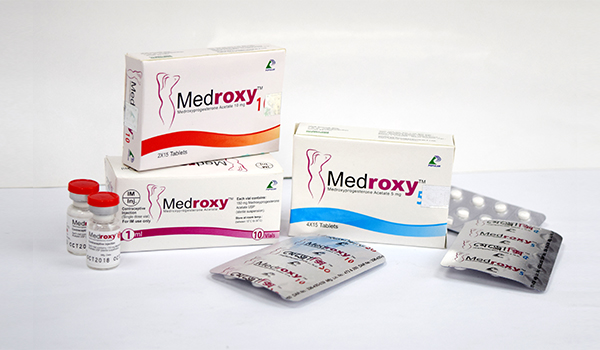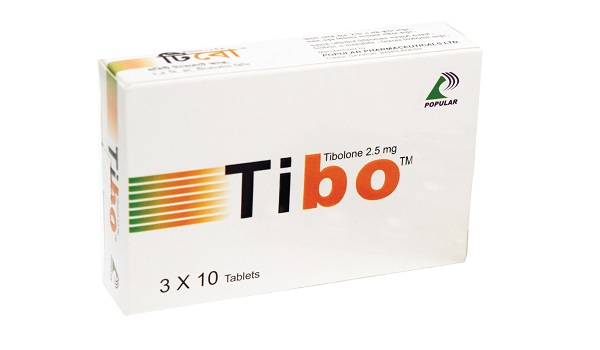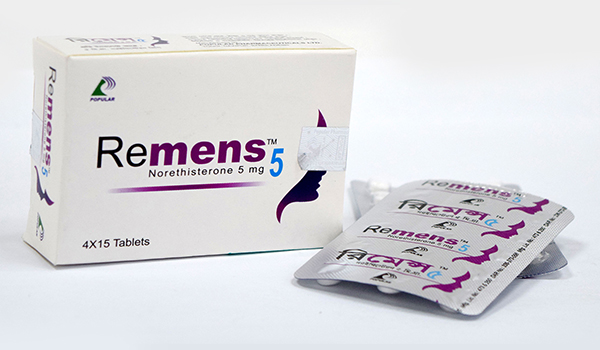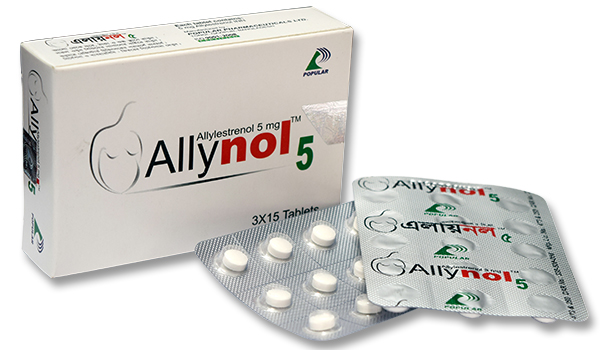Indication
- Hypothyroidism
- Congenital hypothyroidism
- Thyroid-stimulating hormone (TSH) suppression
Dosage & Administration
- Hypothyroidism
Adults: All dosages are highly individualized. Initially, 0.05 mg PO, increased in increments of 0.025 mg 2 to 3 weeks depending on cardiovascular status. Maintenance dosage is 0.2 mg daily, adjusted within first 4 weeks of therapy. For patients who can't tolerate oral doses, adjust I.M. or I.V. dose to about one-half of oral dosage.
- Severe Hypothyroidism in Patients with Cardiac Disease
Adult: Initially 25 mcg once daily. Adjusted in steps of 25 mcg every 4 weeks according to response. Maintaince dose is 50-200 mcg once daily, preferably taken 30 min before of breakfast with caffeine containing liquids or other medication.
- Congenital Hypothyroidism
Children over age 12: Up to 150 mcg or 2 to 3 mcg/kg P.O. daily
Children ages 6 to 12: 100 to 150 mcg P.O. daily
Children ages 1 to 6: 75 to 100 mcg P.O. daily
Infants ages 6 to 12 months: 50 to 75 mcg P.O. daily
Infants ages 3 to 6 months: 25 to 50 mcg P.O. daily
Infants up to 3 months: 10 to 15 mcg/kg P.O. daily
- Thyroid-Stimulating Hormone Suppression
Adults: 2.6 mcg/kg P.O. daily for 7 to 10 days
Administration
- Take tablets on an empty stomach 30 minutes to 1 hour before first meal of a day.
- If patient unable to swallow tablets, crush them and sprinkle into a small amount of food. For infants and children, dissolve tablets in a small amount of water, or breast milk and administer immediately.
- Avoid within 4 hours of bile acid sequestrates or antacids which interfere with Levothyroxine absorption.
- Levothyroxine sodium preparations aren't bioequivalent. Patient should consistently use thesame brand or generic product, with dosing based on weight, age, general physical condition and duration of symptoms.
Precautions
General
Levothyroxine has a narrow therapeutic index. Regardless of the indication for use, careful dosage titration is necessary to avoid the consequences of over- or under-treatment. These consequences include, among others, effects on growth and development, cardiovascular function, bone metabolism, reproductive function, cognitive function, emotional state, gastrointestinal function, and on glucose and lipid metabolism.
Effects on Bone Mineral Density
In women, long-term Levothyroxine sodium therapy has been associated with increased bone resorption, thereby decreasing bone mineral density, especially in post-menopausal women on greater than replacement doses or in women who are receiving suppressive doses of Levothyroxine sodium. The increased bone resorption may be associated with increased serum levels and urinary excretion of calcium and phosphorous, elevations in bone alkaline phosphatase and suppressed serum parathyroid hormone levels. Therefore, it is recommended that patients receiving Levothyroxine sodium be given the minimum dose necessary to achieve the desired clinical and biochemical response.
Patients with Underlying Cardiovascular Disease
Exercise caution when administering Levothyroxine to patients with cardiovascular disorders and to the elderly in whom there is an increased risk of occult cardiac disease. In these patients, Levothyroxine therapy should be initiated at lower doses than those recommended in younger individuals or in patients without cardiac disease. If cardiac symptoms develop or worsen, the Levothyroxine dose should be reduced or withheld for one week and then cautiously restarted at a lower dose. Overtreatment with Levothyroxine sodium may have adverse cardiovascular effects such as an increase in heart rate, cardiac wall thickness and cardiac contractility and may precipitate angina or arrhythmias. Patients with coronary artery disease who are receiving Levothyroxine therapy should be monitored closely during surgical procedures, since the possibility of precipitating cardiac arrhythmias may be greater in those treated with Levothyroxine. Concomitant administration of Levothyroxine and sympathomimetic agents to patients with coronary artery disease may precipitate coronary insufficiency.
Patients with Nontoxic Diffuse Goiter or Nodular Thyroid Disease
Exercise caution when administering Levothyroxine to patients with nontoxic diffuse goiter or nodular thyroid disease in order to prevent precipitation of thyrotoxicosis. If the serum TSH is already suppressed, Levothyroxine sodium should not be administered
Associated Endocrine Disorders
Hypothalamic/Pituitary Hormone Deficiencies In patients with secondary or tertiary hypothyroidism, additional hypothalamic/pituitary hormone deficiencies should be considered.
Autoimmune Polyglandular Syndrome
Occasionally, chronic autoimmune thyroiditis may occur in association with other autoimmune disorders such as adrenal insufficiency, pernicious anemia, and insulin-dependent diabetes mellitus. Patients with concomitant adrenal insufficiency should be treated with replacement glucocorticoids prior to initiation of treatment with Levothyroxine sodium. Patients with diabetes mellitus may require upward adjustments of their antidiabetic therapeutic regimens when treated with Levothyroxine.
Other Associated Medical Conditions
Infants with congenital hypothyroidism appear to be at increased risk for other congenital anomalies with cardiovascular anomalies (pulmonary stenosis, atrial septal defect and ventricular septal defect) being the most common association.
Pregnancy Category
US FDA Approved Pregnancy Category A.
Nursing Mothers
Although thyroid hormones are excreted only minimally in human milk, caution should be exercised when Levothyroxine is administered to a nursing woman. However, adequate replacement doses of Levothyroxine are generally needed to maintain normal lactation.
